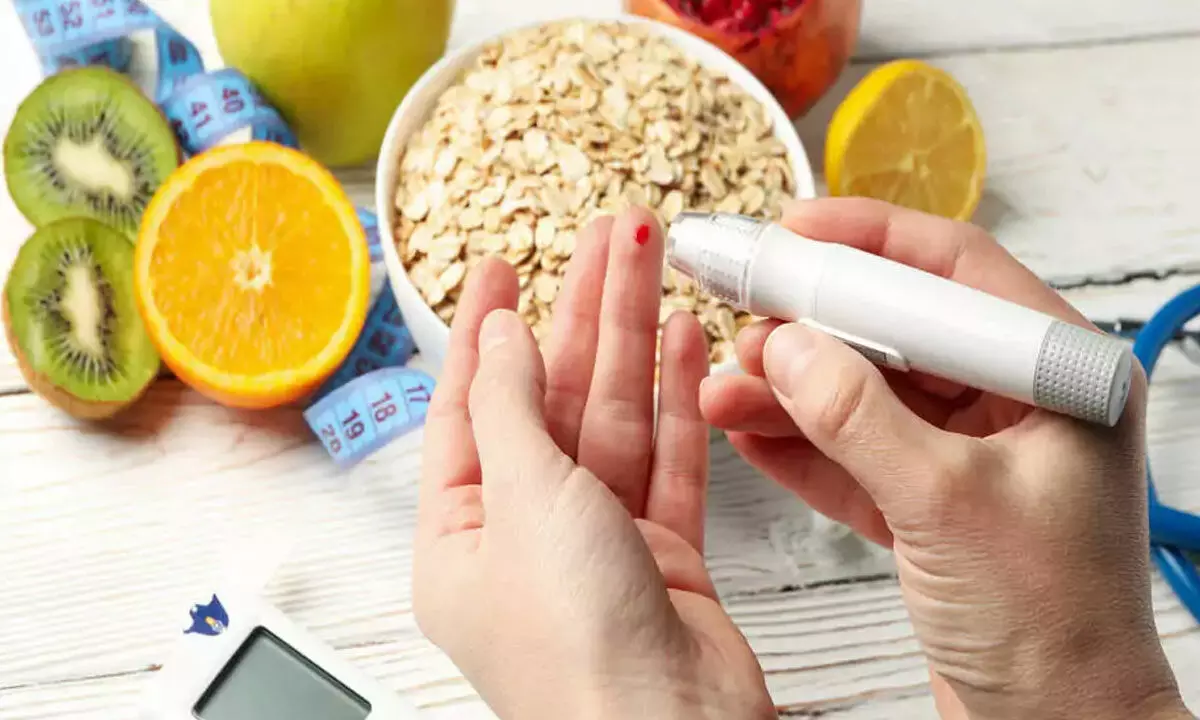Crucial Guidelines for Diabetics: Effectively Managing Blood Sugar Levels

Diabetes is a chronic condition that affects how your body turns food into energy.
Diabetes is a chronic condition that affects how your body turns food into energy. There are two main types of diabetes: type 1 and type 2. Type 1 diabetes is an autoimmune disease that causes your body to attack the cells in your pancreas that produce insulin. Type 2 diabetes is the most common type of diabetes, and it occurs when your body doesn't use insulin properly or doesn't produce enough insulin.
Mindfulness is the practice of paying attention to the present moment without judgment. It can be a helpful tool for managing blood sugar levels, as it can help you to:
• Be more aware of your body's cues, such as hunger, thirst, and tiredness
• Make better choices about food and exercise
• Manage stress, which can contribute to high blood sugar levels
Here are 7 essential practices for diabetic individuals to manage their blood sugar with mindfulness:
1. Practice mindful eating
Mindful eating is the practice of paying attention to your food and eating slowly and deliberately. This can help you to:
• Enjoy your food more
• Be more aware of when you're full
• Eat less overall
When you're mindful of your eating, you're less likely to overeat or make unhealthy choices.
2. Monitor your blood sugar regularly
Checking your blood sugar regularly can help you to track your progress and identify any patterns that may be affecting your blood sugar levels. This information can be helpful in making adjustments to your diet, medication, or exercise routine.
3. Get regular exercise
Exercise is an important part of managing diabetes, as it helps your body to use insulin more effectively. Aim for at least 30 minutes of moderate-intensity exercise most days of the week.
4. Take your medication as prescribed
If you're taking medication for diabetes, it's important to take it as prescribed by your doctor. Don't skip doses or take more or less than you're supposed to.
5. Get enough sleep
When you're well-rested, you're better able to manage stress and make healthy choices. Aim for 7-8 hours of sleep each night.
6. Manage stress
Stress can contribute to high blood sugar levels. Find healthy ways to manage stress, such as yoga, meditation, or spending time in nature.
7. Connect with a diabetes support group
Joining a diabetes support group can be a helpful way to connect with other people who are living with diabetes. You can share tips and experiences, and you can get encouragement and support.
In addition to the practices listed above, there are a few other things that you can do to manage your blood sugar with mindfulness:
• Pay attention to your thoughts and feelings. When you're feeling stressed or anxious, it can be more difficult to manage your blood sugar. Be aware of your thoughts and feelings, and take steps to manage them in a healthy way.
• Be kind to yourself. Living with diabetes can be challenging. Don't be afraid to ask for help when you need it. And be sure to celebrate your successes, no matter how small they may seem.
Managing blood sugar with mindfulness is an ongoing process. It takes time and effort, but it's worth it for your long-term health.
If you have any questions or concerns about managing your blood sugar, please talk to your doctor.

















